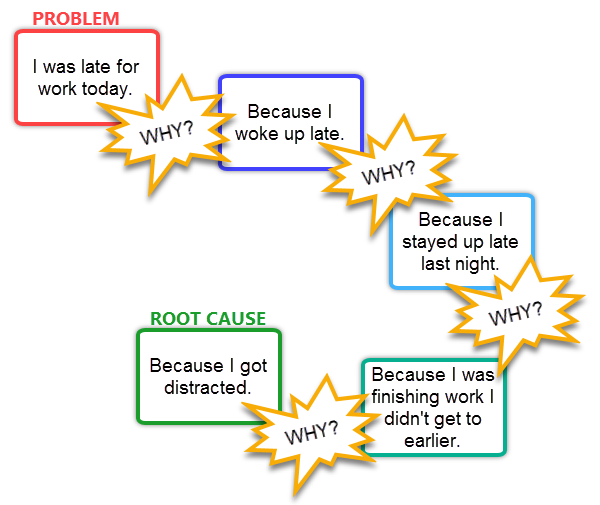Problem? What Problem?
When an issue arises, how do you react?
Do you take immediate action? Impulsive.
Do you make a list of possible solutions? Analytical.
Do you ignore the problem and hope that it will resolve itself? Passive.
I’m an impulsive problem-solver. I want to fix things as soon as I see there’s an issue. Admittedly, this is not the most effective way to deal with problems. I might solve the immediate issue, but often the immediate issue is just a symptom of a larger problem. Which means the problem comes back and I have to solve it again and again.
The most successful problem-solvers (and businesses) are able to get to the root of a problem and address that.
Identifying a problem is the first step to solving it. That’s easier said than done. A problem might present itself as, “I’m not making a profit.” But why? Are your prices too low? Is your overhead too high? Are sales down? You need to figure that out before you can solve the problem. Successful problem-solvers follow these steps:
Tricks (that aren’t really tricks) of Successful Problem-Solvers
Successful problem-solvers have a process that they follow to solve problems (See the chart above). The techniques they use at each step are just as important to overall success as following the steps. Here are a handful of tips you can use right away:
- Write the problem down. This will help you focus on the problem and reduce distractions.
- Talk it out. Problem-solving in a vacuum is a bad idea. You only have your own experiences to work with and may miss something important. The biggest problem in your eyes may not be the biggest problem your business faces. Talk to employees, family, friends, other business owners. You’ll learn that others have dealt with similar problems and find out what successful solutions they’ve found.
- Collect facts. Facts = data. Without it, you’re just guessing. It’s hard to correctly identify the root cause of a problem if you don’t have any data on the symptomatic problems. Using the example above: How will you figure out WHY you’re not making a profit? You’ll need specific details about what you charge customers, what you pay for materials, labor, insurance, taxes, etc. Without that data you can GUESS at the reason, but you won’t know for sure.
- Why? Why? Why? Once you’ve identified the problem, work backwards to find the root cause.
Bottom Line…
Back to my original question: What kind of problem-solver are you? Impulsive problem-solvers often fix symptoms, not the root cause of an issue. What you end up with is a lot of band-aids, but no lasting solutions. Passive problem-solvers, who just wait and hope the issue will resolve itself, must be very patient people indeed. The analytical group are the most successful problem-solvers. But brainstorming possible solutions isn’t enough. You have to gather information and work backwards to pinpoint the root cause of the issue in order to develop really successful solutions.




Recent Comments